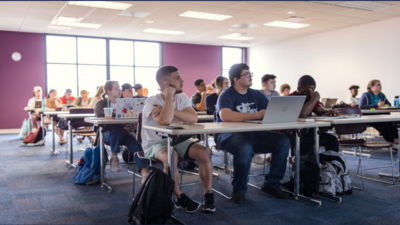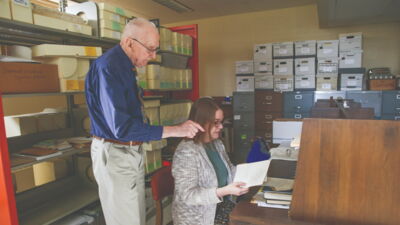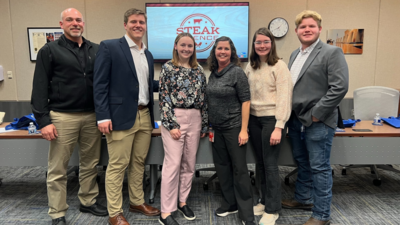Why Pre-Professional Programs?

Many undergraduate students plan to attend graduate school in some capacity after they finish their bachelor’s degree – just under 40 percent, -- and such schools often require prospective students to meet certain academic prerequisites before they can enroll. For students who know the field in which they might want to work after graduation, pre-professional undergraduate programs can help prepare them to matriculate into their graduate school of choice.
What are pre-professional programs, anyway? First, they are different from academic majors. Students who choose to declare that they are in one of these programs must still choose a major area of study. While most choose one that aligns closely with their chosen pre-professional program (such as biology or chemistry for pre-medical students), there are no “one-size-fits-all" pairings. A student could major in biology but take pre-deaconess classes at Concordia or take part in the pre-dental program as a business administration major.
A student’s choice of major, therefore, is not limited by any pre-professional program they choose to pursue. At Concordia, students will work with their academic advisor to ensure that they can complete pre-professional and major requirements on the student’s schedule.
Pre-professional programs can sometimes feel like another major, however. With programs at Concordia ranging from 25 to over 80 credit hours, classes can take up several semesters of a student’s undergraduate education. Fortunately, many programs have significant overlap with aligning majors. For example, most classes on the pre-physician assistant track fulfill requirements for a Bachelor of Science degree in biology. Furthermore, pre-professional classes are not required to complete a degree, although not completing certain courses may limit a student’s ability to be accepted in certain graduate schools.
The main objective of pre-professional programs is to help students matriculate into their graduate school of choice. Most graduate programs in a particular career field will have similar undergraduate prerequisite requirements, but a student’s academic advisor can offer them even more personalized guidance if the student has a certain school in mind. Otherwise, advisors will help students build their schedule in a way that will allow for degree completion and graduate school prerequisites.
Pre-professional programs also prepare students to take standardized tests for entrance into a particular field. Tests like the MCAT and LSAT are required by medical and law schools, respectively, and call for students to possess a certain knowledge base that they can acquire in their undergraduate courses. Programs like Concordia’s pre-med and pre-law tracks serve this purpose.
Pre-health programs of various types are some of the most common pre-professional tracks. At Concordia, these include pre-chiropractic, pre-occupational therapy, pre-optometry, pre-dental hygiene, pre-nursing, pre-pharmacy, pre-clinical laboratory science, and several others. Other programs offered include pre-law, pre-athletic training, pre-engineering, pre-seminary, pre-deaconess, and pre-social work tracks.
Taking part in a pre-professional program can have other benefits outside of getting into graduate school. First, you will be able to expand your skills in a wider variety of areas than just your major. For example, if you major in environmental science but also take pre-veterinary classes, you will have the opportunity to take many classes in Concordia’s geography, business, biology, chemistry, and even art programs! If you wish to experience the full range of academic disciplines during your time in college, enrolling in a pre-professional program is the way to do it.
In addition, pre-professional programs can allow students to find unique volunteering, internship, and job opportunities during their time in college and beyond. Advisors can help students find opportunities in these areas related to their specific area of study. In addition, many colleges – Concordia included -- have a wealth of pre-professional clubs, which often host speakers or career fairs on campus that can help students get connected. Concordia’s Career Services office is a great place for students to start.
The opportunities that students will discover when enrolling in a pre-professional program are unlimited. From experiencing a wide range of academic disciplines to finding internship opportunities and meeting all the prerequisites to gain admittance into their graduate school of choice, students will find that the benefits of these programs are numerous.
Are you interested in pre-professional program offerings at Concordia? Learn more here.
Related Stories


